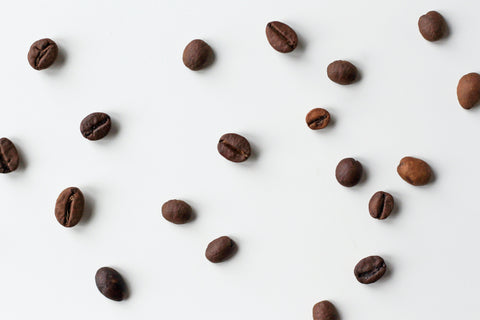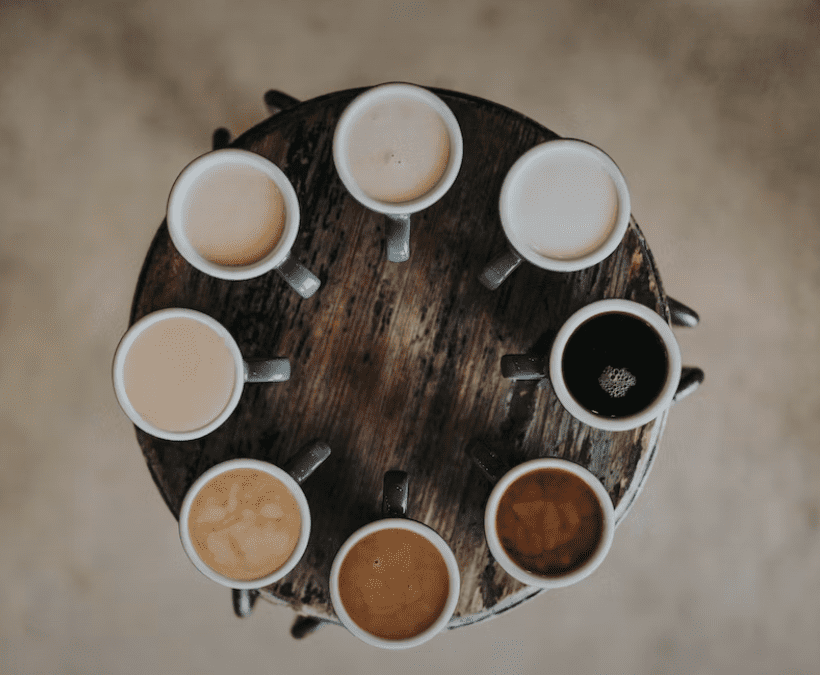Café
Últimamente me he dado cuenta de algo en la gente, y es lo exigente que es todo el mundo con su café. Incluso yo. He estado viajando los últimos días y no he tenido suerte en encontrar un café que me guste. Nuestro cerebro relaciona el comienzo de nuestro día con la bebida que estamos acostumbrados a tomar. Pero en lo que no pensamos es en los beneficios o riesgos de este grano. En 1991 se creía que tenía propiedades cancerígenas, y no fue hasta 2016 que se desmintió. Incluso se demostró que existe un menor riesgo de cáncer entre quienes beben café moderadamente. Pero, ¿por qué se sigue viendo como algo malo?
El café es una fuente de cafeína, riboflavina y magnesio. Una cantidad moderada de cafeína al día es de 400mg, 3-5 tazas. Lo que define una taza es el tipo de grano utilizado, cómo se ha tostado, la cantidad de molido y cómo se prepara. Los niveles de cafeína bajos o moderados aumentan el estado de alerta, la energía y la capacidad de concentración. En cambio, en grandes cantidades, aumenta la ansiedad, la inquietud, el insomnio y el ritmo cardíaco. Los polifenoles del café podrían tener beneficios neurológicos y actuar como antidepresivos.

Aunque es importante tenerlo en cuenta, el café en las mujeres puede presentar más riesgos que beneficios. Cuando se tienen problemas hormonales como el síndrome premenstrual, el síndrome de ovario poliquístico, los fibromas, la endometriosis y los problemas para quedarse embarazada, el café podría exacerbar estas condiciones. Las mujeres metabolizan el café más lentamente que los hombres, y permanece en nuestro organismo durante más tiempo, alterando nuestro sueño y nuestro horario hormonal. He aquí algunos datos más sobre el café:
- La bebida se remonta al año 800 d.C.
- Los granos de café son semillas
- Hay dos tipos, arábica y robusta
- Brasil es el mayor productor del mundo
- Espresso significa exprimido en italiano
- Se puede sufrir una sobredosis de café
- La fiesta del té de Boston popularizó el café en Estados Unidos
- La palabra café proviene de la palabra vino en árabe
- Los exfoliantes de café son increíbles para la piel
Así que, por muy bueno o malo que sea el café, todo depende de cómo reaccione tu cuerpo ante él. Personalmente, el café se está convirtiendo en una parte muy importante de mi vida, y aunque intento tomarlo en muy poca cantidad, me apasiona. No hay nada mejor que empezar mis días con un café frío, y tener la mente despejada y preparada para el día. He notado que es un calmante para la ansiedad y me ayuda a concentrarme. Entonces, ¿cómo te afecta a ti el café? ¿Está tu cuerpo contento con la forma en que lo consumes? Comprueba el que vendemos, bromas aparte, es el mejor café que he probado en mi vida y nada se puede comparar hasta ahora.
Coffee
I’ve noticed something about people recently, and it’s how picky everyone is about their coffee. Even me. I’ve been traveling for the last few days and I have had no luck finding a coffee that I like. Our brains relate the start of our day with the drink we’re used to having. But what we don’t think about, is the benefits or risks of this bean. In 1991, it was believed to have cancerous properties, and not until 2016 was this debunked. It was even proven that there is a decreased risk of cancer among those who drink coffee moderately. But why is it still seen as something bad?
Coffee is a source of caffeine, riboflavin, and magnesium. A moderate amount of caffeine per day is of 400mg, about 3-5 cups. What defines a cup is the type of bean used, how it was roasted, the amount of grind, and how it’s brewed. Low to moderate caffeine levels increase alertness, energy, and ability to focus. Whereas, large amounts, increase anxiety, restlessness, insomnia, and increase heart rate. Polyphenols in coffee could have neurological benefits and act as an antidepressant.

Although it is important to consider, coffee in women may present more risks than benefits. When having hormone issues like PMS, PCOS, fibroids, endometriosis, and trouble getting pregnant, coffee could exacerbate these conditions. Women metabolize coffee slower than men, and it stays in our system for longer, messing up with our sleep and hormone schedule. Here are a few more facts about coffee:
- The drink goes back to 800 A.D.
- Coffee beans are seeds
- There are two types, arabica and robusta
- Brazil is the biggest producer in the world
- Espresso means pressed out in Italian
- You can overdose on coffee
- The Boston Tea party popularized coffee in America
- The word coffee comes from the word wine in Arabic
- Coffee scrubs are amazing for your skin
So, as good or bad coffee may be, it’s all about how your body reacts to it. Personally, coffee is becoming a really big part of my life, and as much as I try to have it in very little amounts, i‘m very passionate about it. There’s nothing better than starting my days off with a cold coffee, and getting my mind clear and ready for the day. I have noticed it to be an anxiety reliever and it helps me focus. So how does your coffee affect YOU? Is your body happy with the way you consume it? Check out the one we sell, all jokes aside, it is the best coffee I’ve tried in my life and nothing compares so far.

